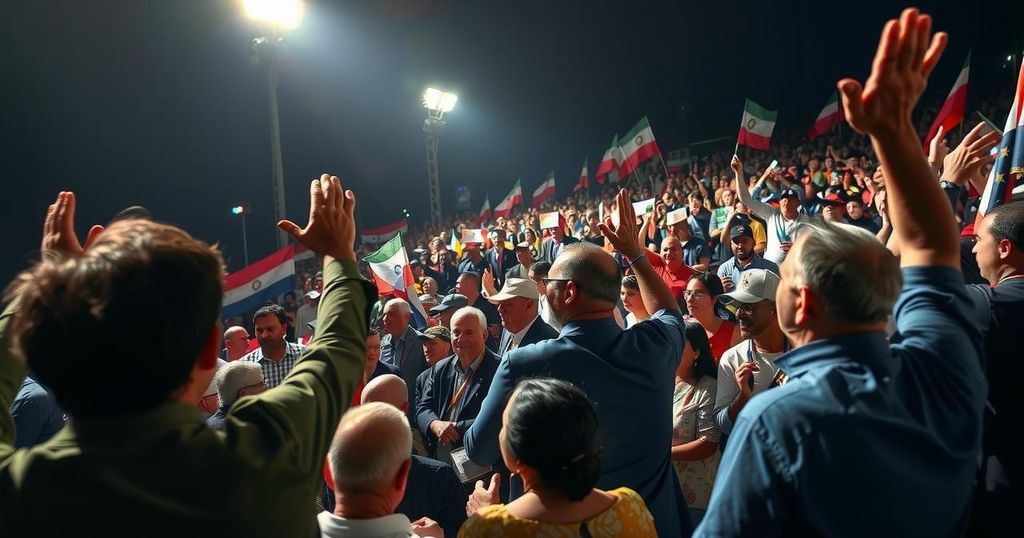Leftist Candidate Yamandu Orsi Leads in Uruguay’s Presidential Election

Yamandu Orsi, the leftist candidate from the Frente Amplio alliance, is projected to lead in Uruguay’s presidential election against Alvaro Delgado, reflecting voter discontent with five years of conservative governance. Support from popular former president Mujica bolstered Orsi’s campaign, while public concerns over safety remain paramount. Polls indicated a narrow race between the two contenders as the election signifies a critical juncture for Uruguayan politics.
In the recent presidential election in Uruguay, leftist candidate Yamandu Orsi from the Frente Amplio alliance is projected to defeat Alvaro Delgado of the National Party, signaling a potential shift back to leftist governance after five years of center-right leadership. Orsi has garnered significant support, including endorsements from influential figures like former president Jose “Pepe” Mujica, as voters express their dissatisfaction with the conservative administration amid rising concerns over safety and crime. The close election results highlight the divided sentiment among voters, as both candidates campaigned vigorously in a country known for its democratic stability.
Polling conducted prior to the election indicated that Orsi had a slight lead, securing approximately 49 percent of the votes compared to Delgado’s 46.6 percent. Orsi, who previously won 43.9 percent in the first round, benefited from the backing of the former president Mujica, whose historical role in leftist politics resonates with many voters. The tight nature of the race reflects a broader national discontent with the outgoing Republican Coalition, despite President Luis Lacalle Pou’s high approval ratings.
As Uruguayans expressed their hopes for the future, concerns over public safety remained the top priority. Many voters shared their desires for a government capable of ensuring security and peace. For instance, Juan Antonio Stivan conveyed a yearning for safety on the streets, while winegrower Aldo Soroara articulated a call for effective leadership during challenging times. Uruguayan elections are compulsory, reflecting a civic culture that emphasizes political engagement.
Uruguay has experienced significant political oscillation in recent years, moving between leftist and center-right rule. The Frente Amplio coalition, which includes Orsi’s party, had been in power from 2005 until 2020, implementing progressive reforms such as the legalization of abortion and same-sex marriage. Following a shift to a center-right government, concerns about rising crime and drug trafficking emerged, complicating public sentiment and leading to a desire for change. The upcoming election illustrates the electorate’s divided opinions on governance and safety, essential topics influencing the 2023 voting cycle.
The electoral landscape in Uruguay is evolving, with Yamandu Orsi poised to reclaim leadership for the left amidst ongoing public concerns regarding safety and governance. This potential return to leftist rule is emblematic of the public’s dissatisfaction with recent conservative policies. The next administration will face pressing challenges as citizens look toward a future focused on security and effective governance, with the legacy of previous leftist reforms still influencing current political dynamics.
Original Source: www.france24.com







